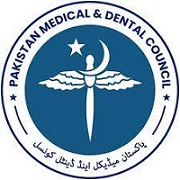PREFERENCE IN CONTRACEPTION AND ATTRIBUTING FACTORS BEHIND IT AMONG WOMEN PRESENTING TO FAMILY PLANNING CENTER IN A TERTIARY CARE HOSPITAL OF PAKISTAN
Abstract
Objective: To study the frequency of use of contraception and the preferred method of contraception among women presenting in family planning center in Jinnah hospital Lahore.
Method: A total of 500 women were randomly selected by convenient sampling. These women presented at family planning center in Jinnah hospital. This family planning center provides services for 6 days in a week for five hours daily. The women were interviewed on a structured questionnaire and prior consent for interview was taken from each participant.
Results: The majority of women had awareness about the use of different available contraceptive methods. The awareness about using condoms as contraceptive was highest up to 98% whereas awareness about hormonal implants was the least known method known to them less than 2 %.The most common method of contraception practiced was condoms in about 41%whereas the least used method was implanon 0.6%.women shared different reasons for not using contraceptive methods the fore most reason was lack of availability of contraception in 28% whereas only 11% did not use contraceptive due to fear of its side effects.As regards the knowledge about side effects of different contraceptive methods 48% were aware about the side effects with condoms and least awareness about the side effects of hormonal implants about 0.4%.The source of information regarding use of contraceptive methods was received from the family planning centers about 48% and least from newspaper about 2%.
Conclusion: The women have knowledge about common contraceptive methods like condoms, injectable and oral contraceptive pills but least knowledge about hormonal implants. The knowledge about side effects of the contraceptives is very poor. The main barrier in using contraception is the lack of availability of contraceptive method of choice. The most common source of information about contraceptive use comes from the family planning centers and media is still lagging behind to spread contraceptive advice.






